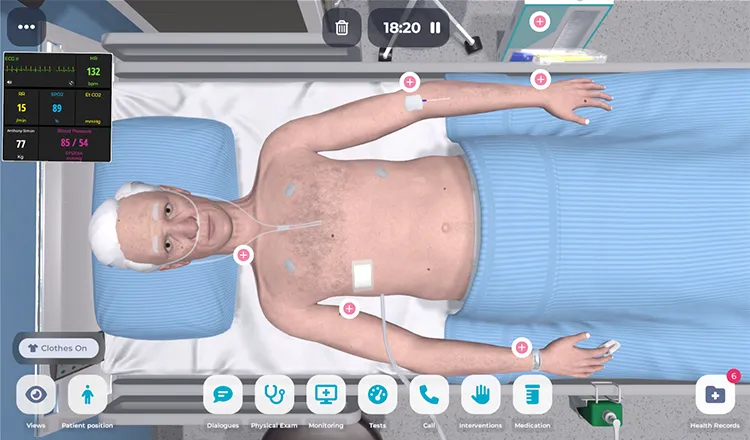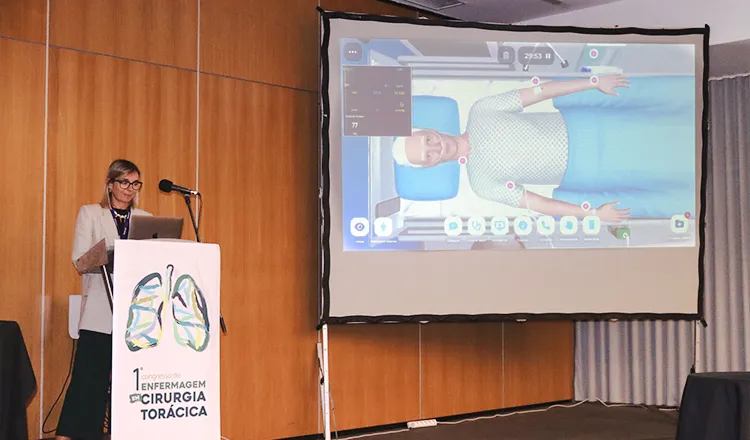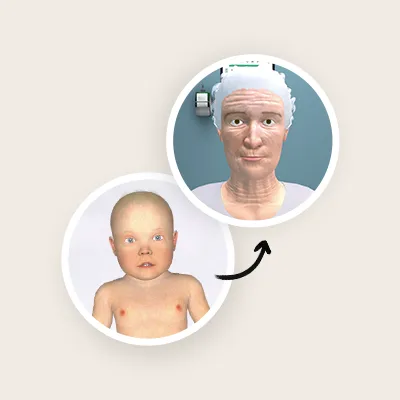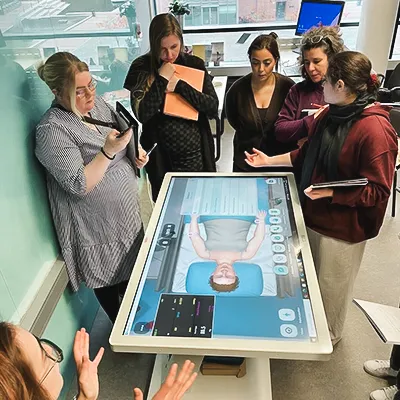Celebrating World Lung Day:
Virtual Patients in the Thoracic Surgery Nursing Conference
On September 25th, in celebration of World Lung Day, Body Interact joined the Nursing Thoracic Surgery Conference to showcase an innovative approach to nursing education: virtual patients.
At the event, participants experienced a highly realistic clinical scenario simulating a postoperative right upper lobectomy via Video-Assisted Thoracic Surgery (VATS). This simulation allowed nurses to practice comprehensive patient assessment, monitoring, and clinical decision-making in a safe, controlled environment—without any risk to real patients.

Simulation in Thoracic Surgery: Why It Matters
The conference created a unique space for collaboration and knowledge exchange with expert nurses. Attendees explored the complexities of postoperative care, including early complication detection, pain management, and interdisciplinary communication. These interactions highlighted the value of virtual patients in reinforcing critical thinking, enhancing clinical reasoning, and promoting safer nursing practices.
Thoracic surgery presents high risks of respiratory and hemodynamic complications, making hands-on training particularly challenging. The conference emphasized several key benefits of using virtual patients in this context:
- Safe training in high-complexity scenarios
- Error reduction before patient contact
- Development of clinical reasoning and decision-making skills
- Rapid recognition of postoperative complications
- Enhanced teamwork and interdisciplinary communication
- Immediate feedback for continuous improvement
- Repeated practice without patient risk

Evidence Supporting Virtual Patients
Engaging with expert thoracic nurses, participants saw firsthand how virtual patients strengthen confidence, improve patient safety, and deepen understanding of complex postoperative care. The discussions underscored that simulation is not merely a technological innovation—it is a strategic educational tool that bridges theory and practice.
In thoracic surgery, where precise assessment and timely interventions are critical, integrating virtual patients into nursing training ensures that care is both effective and safe. The conference demonstrated that these simulations are not only an engaging learning experience but also a powerful tool for advancing quality in thoracic care.
Body Interact is proud to contribute to this evolving field, helping nurses prepare for the challenges of modern thoracic surgery while celebrating the importance of lung health on World Lung Day.
By Ana Santa – MSN, APRN
Editorial Manager









